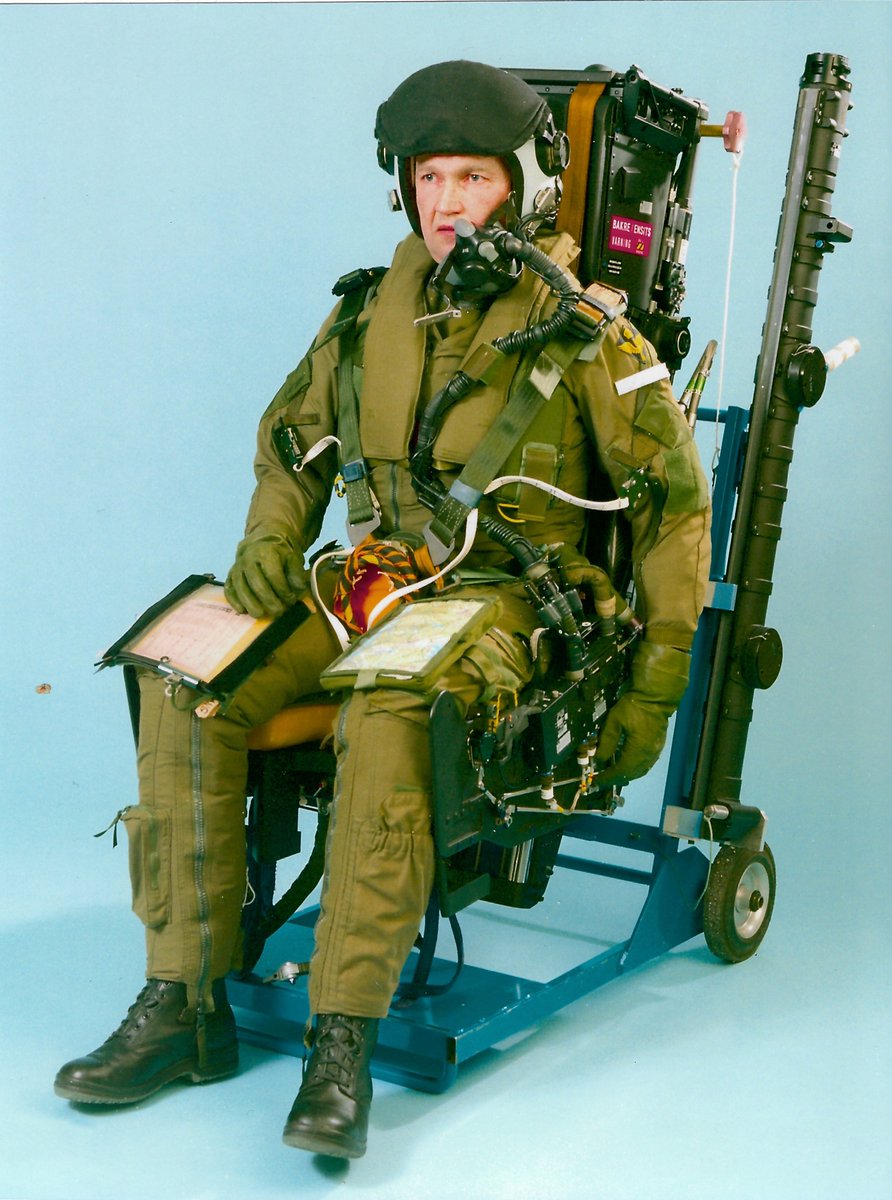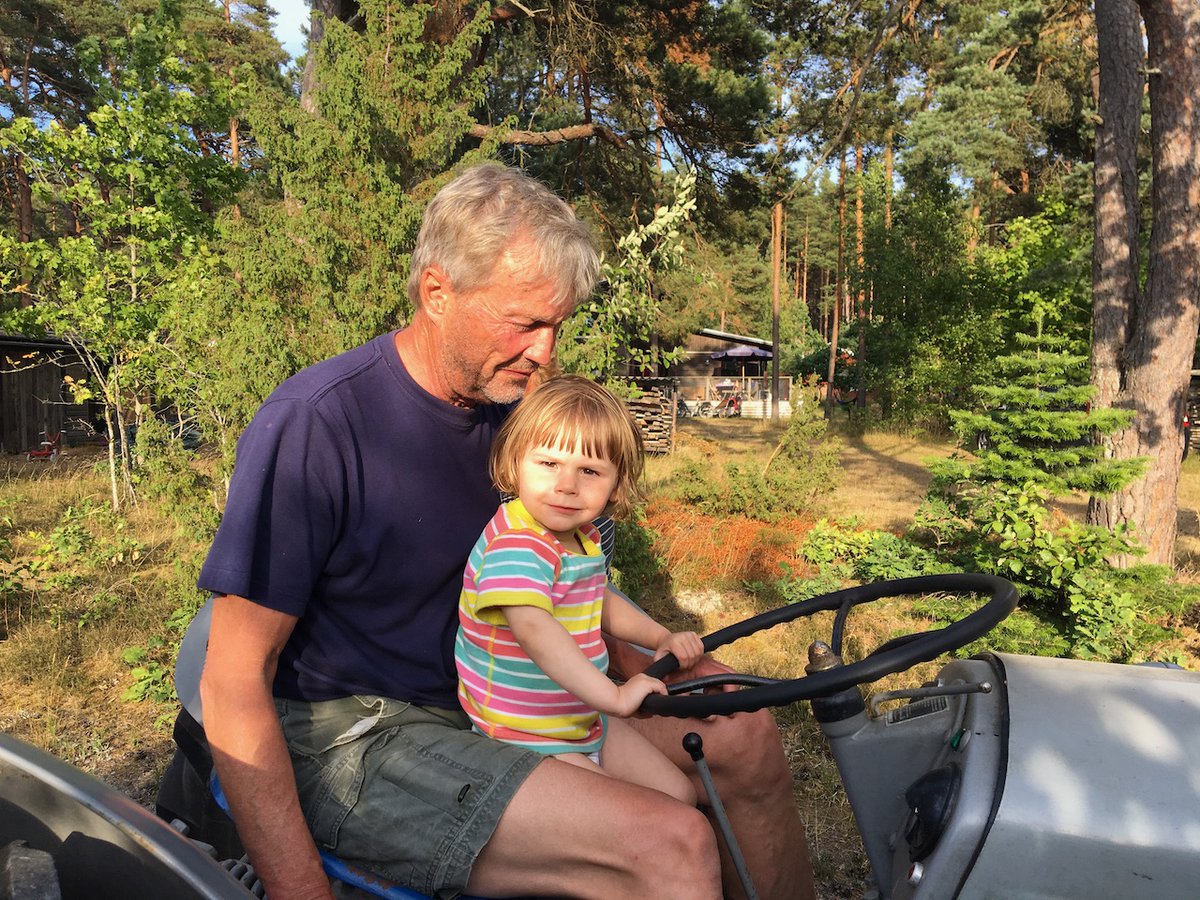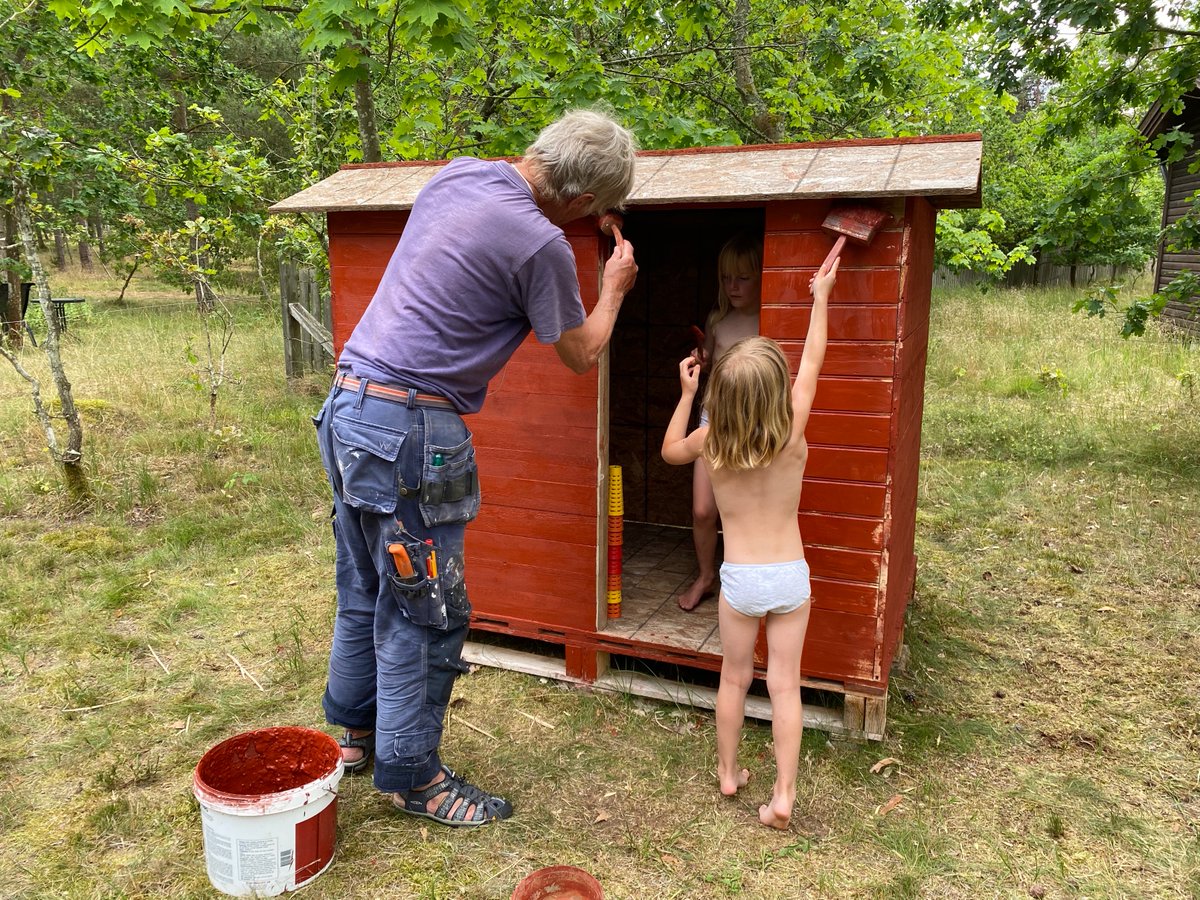My father, Jan Angner, died at age 75 in an offshore sailing incident on August 26. A Twitter memorial. /1 

An experienced sailor, Jan was on his way from Lickershamn (Gotland) to Häradsskär near the mainland, when something went terribly wrong. The boat veered off course, and hit outlying rocks several nautical miles Southwest of where he was headed. It sunk shortly thereafter. /2
The search-and-rescue operation launched the following day was massive. It involved units from Swedish Rescue (Sjöräddningen), the Coast Guard, the Navy, and the Police; multiple airplanes and helicopters; several canine units; and a small flotilla of vessels of various sizes. /3 

Teams of divers were on standby throughout, but were unable to deploy because of weather. I joined the search myself, as did many volunteers – including pilots from the local vintage aeroplane club, of which my father was a member. /4
The wreck has yet to be found. The body washed up on a beach north of Borgholm (Öland) five days later. /5
There's something Homeric about his fate. The beach is quite close to our house and his point of departure, but literally 100 miles from where the accident must have taken place. It's as though the Sea came to claim him – but then had the courtesy to bring him back home. /6
My father was, for lack of a better term, pretty badass. He started off as an Air Force fighter pilot, flight instructor, and aerospace engineer, flying the J 32 Lansen, the J 35 Draken, and the J 37 Viggen. /7 



It was an unspeakably dangerous line of work. A recent documentary noted that the Swedish Air Force lost one pilot a month throughout the entire Cold War: 550 in total, drawn from a relatively small pool of elite pilots. (Dramatic footage below.) /8
svtplay.se/video/31176302…
svtplay.se/video/31176302…
They trained to penetrate Soviet air defences by flying a mere 10 meters above the Baltic. That close to water, a jet will plow up a massive wake, and even experienced pilots risk getting vertigo. Paradoxically, this got harder with newer planes offering a better view. /9
They played war games, among other things intercepting the much faster SR-71 Blackbirds that regularly skirted Swedish territory – locking their radars on them and setting off alarm bells in the cockpits, signalling the ability to take them down. /10
key.aero/article/saving…
key.aero/article/saving…

One of his colleagues accidentally crossed into Soviet territory, and was lucky to only set off a diplomatic incident. He could easily have gotten shot down on the spot. /11
Plot twist: Throughout this period, my dad was on the commission that investigated Air Force crashes. He'd be away for weeks on end when I was little, searching for fuselage and human remains in the mountains and at sea. /12
In 1987, my father joined @Saab as an experimental test pilot, as the next-generation fighter aircraft JAS 39 Gripen was about to start flight testing. He was one of the first pilots to fly the plane. (I'm pretty sure he's flying the one in the front in the picture below.) /13 



The new job was no less dangerous. He told me they fully expected to crash a few planes, but that they operated in a way that would preserve human life. There were two crashes while he was on the job, no fatalities. /14
He ended up Chief Engineer for the entire project, responsible among other things for the system software. They'd tinker with the code over the weekend, and then on Monday he'd take it for a test drive at Mach 2 and 9g. /15
He was lucky. Upon retirement, the only injury he had sustained in service was a bad shoulder from a minor parachuting incident. /16 

But here's the thing: flying wasn't even his greatest passion. He was into the great outdoors: sailing, offshore kayaking, skiing, biking, long-distance skating, horseback riding, camping out on glaciers… He texted me this picture in April of 2019, at age 72. /17 

He was *really* into long-distance skating – on various lakes and, conditions permitting, on the Baltic. His unique workplace gave him unmatched insight into where the good ice was. This is the two of us skating on a local lake in 2017. /18
He also volunteered his time for a number of local and charitable organizations, promoting causes ranging from children's rights and the rights of indigenous peoples to bicycling advocacy and a variety of environmental issues. /19
He was driven by a sort of quiet (but relentless) rage about injustice in the world. During the Vietnam-War era, he marched for causes that could have cost him his security clearance and military career. /20
He put his life on the line for his country, but he was evidently willing to sacrifice his career for higher causes of peace and justice – in Sweden and abroad. /21
He loved the arts, especially music. He and his partner were avid concert goers, and had season tickets to the symphony. He said the greatest tragedy of his life was not learning to play an instrument. (So he made me play the clarinet.) /22
At some point in high school, I thought I too wanted to be an engineer. I whined about having to study social sciences and the humanities. He gave me the biggest scolding I can recall – lecturing me about the importance of a well-rounded education. /23
The result was that I signed up for optional courses in art history – which, I gladly confess, have served me well. /24
More than anything, though, he adored his grandkids. And they adored him. When he came to visit, they'd follow him around like puppies, looking for an opportunity to jump onto his lap. /25 

The word that comes to mind is "presence." He was always there for the kids – changing diapers, reading to them, consoling them, taking them for adventures. He built an entire summer house for the kids and grandkids, mostly with his own hands. /26 



His love and care was remarkably effortless. We have young and healthy babysitters who apparently collapse in bed after a day with these 3. But my dad could take care of them for a week with no apparent effort – while cleaning the house and building a playhouse from scratch. /27 

Here's a little trailer he built – using parts laying around the garage – so that he could haul our first-born around with his bike. /28 

In all, I think of him as a sort of Enlightenment figure. He wasn’t a pacifist, obviously – being trained and ready to blow things up at supersonic speed. But he believed in peace and justice. /29
He wasn’t naive about the present, but he was an optimist about the future. He thought a better world was within reach, and that we not only had the ability, but the duty, to realize it. /30
He thought of art, science, and engineering not as separate endeavors, but as a joint vehicle for social improvement. And he believed human ingenuity could deliver not only minor fixes to practical problems, but a better, more just world for all of us. /31
I thank each and every one involved in the search-and-rescue operation. I was blown away not only by the skill, dedication, and professionalism that they exhibited, but by their kindness and empathy as well. /32
I am grateful beyond words for the almost 50 years of love and adventure that I got to spend with my father. I loved him very much. The void he leaves behind is simply colossal. /33
They were regularly harassing Soviet aircraft over the Baltic. /10.5 svd.se/unika-bilder-v… 

The confrontations were documented by concerned Soviet flight crews. Their reports and pictures surfaced after the Cold War was over. /10.75 



• • •
Missing some Tweet in this thread? You can try to
force a refresh













